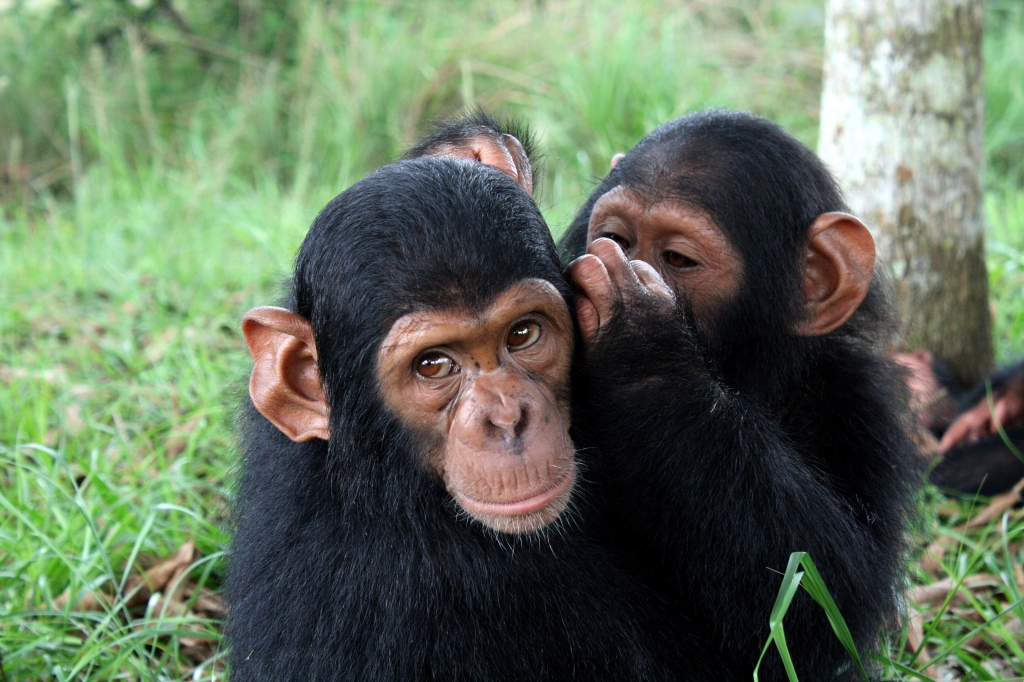-
Tips for becoming a good boxer - November 6, 2020
-
7 expert tips for making your hens night a memorable one - November 6, 2020
-
5 reasons to host your Christmas party on a cruise boat - November 6, 2020
-
What to do when you’re charged with a crime - November 6, 2020
-
Should you get one or multiple dogs? Here’s all you need to know - November 3, 2020
-
A Guide: How to Build Your Very Own Magic Mirror - February 14, 2019
-
Our Top Inspirational Baseball Stars - November 24, 2018
-
Five Tech Tools That Will Help You Turn Your Blog into a Business - November 24, 2018
-
How to Indulge on Vacation without Expanding Your Waist - November 9, 2018
-
5 Strategies for Businesses to Appeal to Today’s Increasingly Mobile-Crazed Customers - November 9, 2018
Study Disagreement over chimpanzee ‘accent’
According to a study that was released early this year, researchers noted that chimpanzees can learn a new language from others of their kind.
Advertisement
“It would be really exciting to try and find out why chimpanzees are motivated to sound more similar to their group mates”, adds Simon Townsend of the University of Zurich, who was also involved in the study. Three years later, the grunt the Dutch chimps used to refer to an apple changed from a high-pitched eow-eow-eow to the lower-pitched udh-udh-udh used by the Scots, those researchers said. The study was based on the data collected by research team as a few chimpanzees were moved from the Dutch safari park to Edinburgh Zoo.
“It is an intriguing criticism of our research – and this really is just how science works”.
Meantime, the commentators of the study contend that there was nothing so distinctive in the calls of the two groups.
The original study’s eight authors stood by their findings and offered a rebuttal of the new analysis.
Co-workers and Dr Townsend, meanwhile, have also re-plotted the data, monitoring individual chimps over time for changes – emphasising the difference that was first, and convergence towards lower pitched calls around the three years. Critics of the paper suggest that the adjustment of the chimps was merely “social adjustment”.
It is a notable illustration of how different scientists can draw different conclusions from the same data. In fact, they write, “the majority of calls did not differ in the first place, indicating that irrespective of their provenance, most subjects of both populations had always responded with the general same call type to the presentation of apples”.
“If you have incorporated more over the three-year span, then your calls transform more through time”, he said.
However, the authors of the study counter they were open about both of these chances – and concur they are not easy to tease apart. “Or it could be that they are adjusting their calls to fit in”, Dr Townsend added.
Finally, the critics argue that the higher-pitched calls could simply reflect greater excitement in the Dutch chimps, following their move, which settled down over time.
“It could be that they’re actively changing this call to improve understanding”.
The faultfinders further propose that, notwithstanding the possibility that they accept the calls by the Dutch chimps surely did move, it only constitutes a ‘social adjustment, ‘ more of an accent change than learning a new ‘word’.
In any case, Dr Townsend and his associates propose that, if this were the situation, you may expect a parallel change in the Edinburgh chimps’ conduct, as they conform to their new allies – which do not appear to be the situation.
Advertisement
“There are a few genuine and very strong disagreements among primate communication researchers about what these types of data show, and mean”, he said in an email.




























